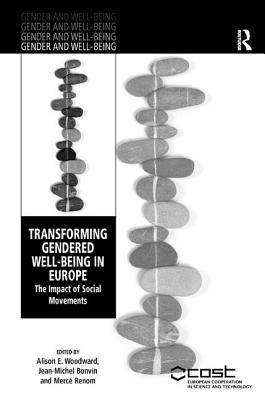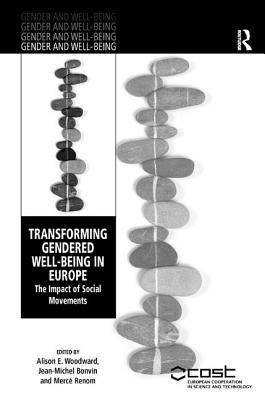
- Afhalen na 1 uur in een winkel met voorraad
- Gratis thuislevering in België vanaf € 30
- Ruim aanbod met 7 miljoen producten
- Afhalen na 1 uur in een winkel met voorraad
- Gratis thuislevering in België vanaf € 30
- Ruim aanbod met 7 miljoen producten
Zoeken
€ 305,45
+ 610 punten
Uitvoering
Omschrijving
European social movements improve the well-being of men and women but need further analysis through a gender-sensitive lens. Taking an international and cross-disciplinary perspective, this book examines the impact of European social movements on gendered political and material well-being. Insights from history, politics, sociology and gender studies help identify how social movements have been instrumental in changing individual well-being through participation and empowerment. These movements have contributed to collective well-being thanks to victories in health, sexualities, political recognition and access to material goods. The contributions pay particular attention to the role of women activists in social movements varying from unions and religious movements to the women's movement itself. The settings range from 19th century Catalonia to Switzerland and Poland, including studies on European transnational movements today and their impact on global gendered well-being. The authors consider how gender has been important in defining the goals, strategies and outcomes of social movements. Thanks to the international spread of contributions a comparative record can be examined. Together the authors provide unique and concrete illustrations of the role of collective action and the participatory process on transforming women and well-being in European societies. The book provides essential insights for students and scholars working on social and women's movements, European well-being and welfare, and transnational action.
Specificaties
Betrokkenen
- Auteur(s):
- Uitgeverij:
Inhoud
- Aantal bladzijden:
- 308
- Taal:
- Engels
- Reeks:
Eigenschappen
- Productcode (EAN):
- 9781409402831
- Verschijningsdatum:
- 23/09/2011
- Uitvoering:
- Hardcover
- Formaat:
- Genaaid
- Afmetingen:
- 156 mm x 234 mm
- Gewicht:
- 612 g

Alleen bij Standaard Boekhandel
+ 610 punten op je klantenkaart van Standaard Boekhandel
Beoordelingen
We publiceren alleen reviews die voldoen aan de voorwaarden voor reviews. Bekijk onze voorwaarden voor reviews.







